Question And Answer
Publications
Articles, publications, books, tools and multimedia features from the U.S. Institute of Peace provide the latest news, analysis, research findings, practitioner guides and reports, all related to the conflict zones and issues that are at the center of the Institute’s work to prevent and reduce violent conflict.
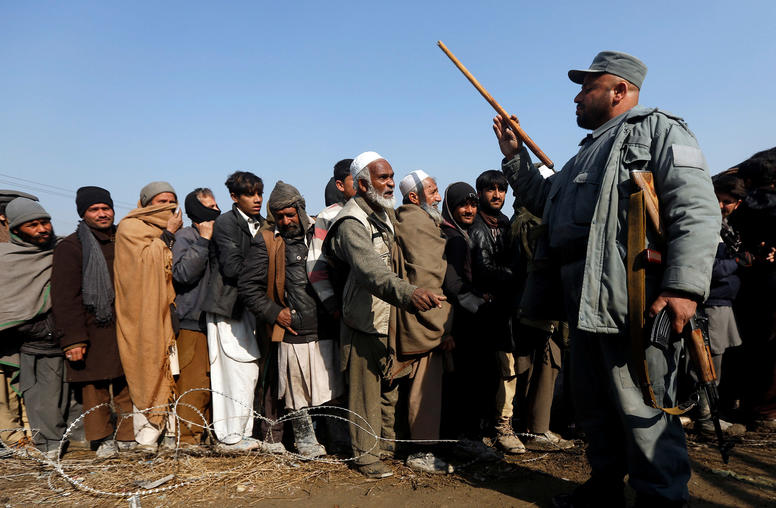
Displacement and the Vulnerability to Mobilize for Violence: Evidence from Afghanistan
Forced displacement affects over 70 million people worldwide and is among the most pressing humanitarian and development challenges today. This report attempts to ascertain whether a relationship exists between displacement in Afghanistan and vulnerability to recruitment to violence by militant organizations. The report leverages an understanding of this relationship to provide recommendations to government, international donors, and others working with Afghanistan’s displaced populations to formulate more effective policies and programs.

Nancy Lindborg on the Iran Crisis and its Impact on Iraq and Afghanistan
USIP President and CEO Nancy Lindborg explains how U.S.-Iran tensions could exacerbate state fragility and hamper longstanding peacebuilding efforts in Iraq and Afghanistan, saying, “All of this can be put at risk with the current tensions as both countries really fear becoming collateral damage.”
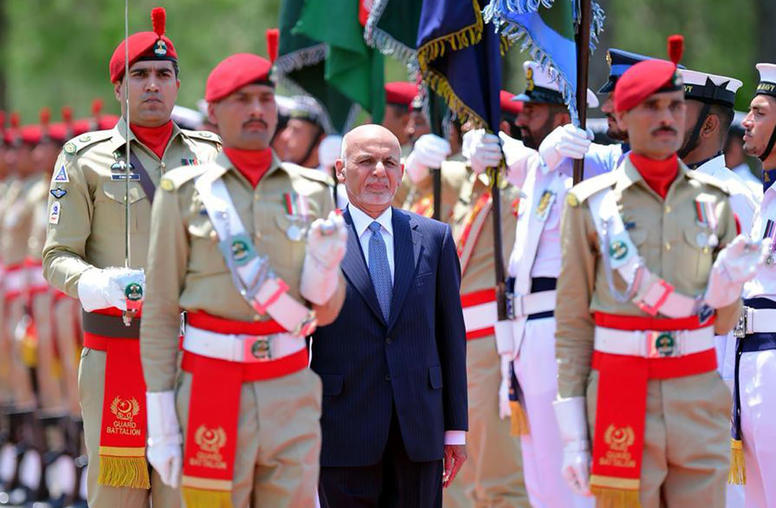
The India-Pakistan Rivalry in Afghanistan
The most consequential regional competition for influence in Afghanistan is the contest between India and Pakistan. Indian leaders strive to cultivate Afghanistan as a natural partner and reliable bulwark against Islamic militants, including Pakistan-backed groups, while Islamabad seeks to counter what it regards as an Indo-Afghan nexus to encircle and weaken Pakistan. This report examines the interests and strategies of both countries in Afghanistan within the context of peace negotiations and developments in Kashmir.
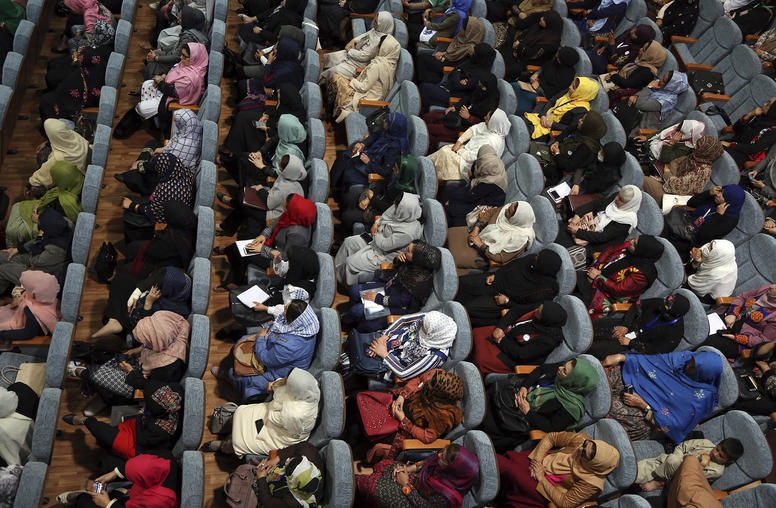
Afghan Women’s Views on Violent Extremism and Aspirations to a Peacemaking Role
Recent efforts at settling the decades-long conflict in Afghanistan have featured an increasingly vibrant and visible display of women’s activism. Even with the support of the government and its international partners, Afghan women still face tremendous challenges to realizing their aspirations for a role in peacemaking. Based on extensive interviews throughout Afghanistan, this report attempts to better understand the changing public role of Afghan women today and their contributions to peacebuilding and ending violence.

Scott Worden on Afghan Elections and the Peace Process
Amid news of an interim U.S.-Taliban deal, Afghanistan’s election commission announced President Ashraf Ghani has won reelection—a result his opponent has openly rejected. USIP’s Scott Worden warns this kind of political infighting weakens the government’s negotiating position ahead of possible intra-Afghan talks, saying “the Taliban profit from political chaos.”
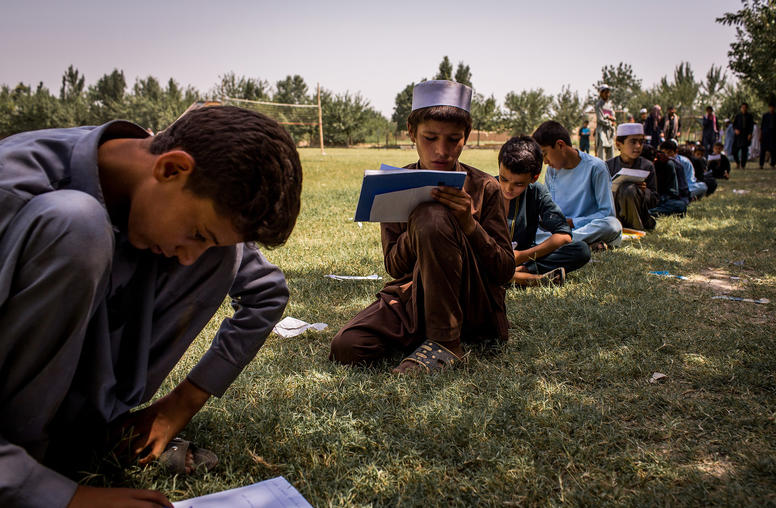
Service Delivery in Taliban-Influenced Areas of Afghanistan
In 2018 and 2019, USIP partnered with the Afghanistan Analysts Network (AAN), a Kabul-based research and policy organization, in an effort to understand how the Taliban provide education, health, and other services to people who live in areas where they are the dominant power. Based on a series of studies conducted by AAN in five districts across the country, the report also examines the Taliban's motivations as a governing entity and their implications for a potential peace settlement.
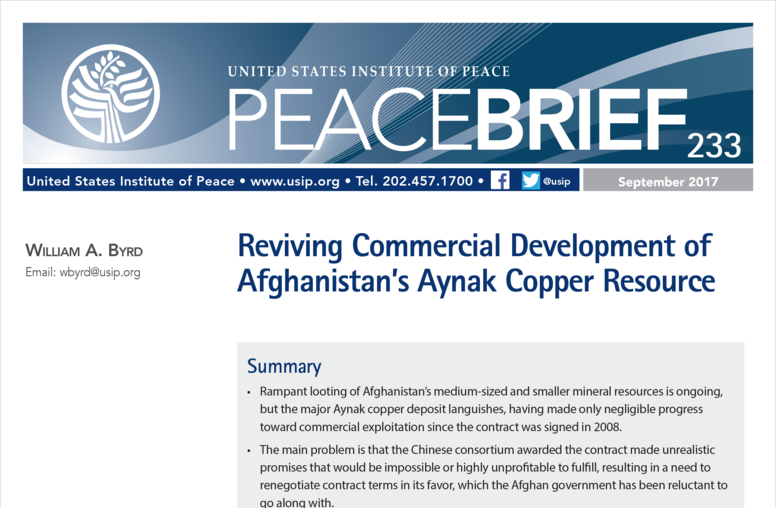
Reviving Commercial Development of Afghanistan’s Aynak Copper Resource
While other, smaller mineral resources are being rampantly looted, Afghanistan’s large Aynak copper deposit—worth upward $50 billion—has languished unexploited despite being contracted to a Chinese consortium nearly a decade ago. This Peace Brief seeks to understand what went wrong and explores options for breaking out of the current impasse. Resuscitating the development of Aynak, though challenging, would send a powerful signal of beneficial exploitation of Afghanistan’s mineral resources.

Belquis Ahmadi on Afghan Women and the Peace Process
Since 2001, Afghan women have assumed larger roles in society—becoming teachers, doctors and government officials. With intra-Afghan talks expected to begin this month, USIP’s Belquis Ahmadi says it’s important the Taliban “accept the reality that today’s Afghanistan is very different from the country they ruled” when it comes to women’s rights.
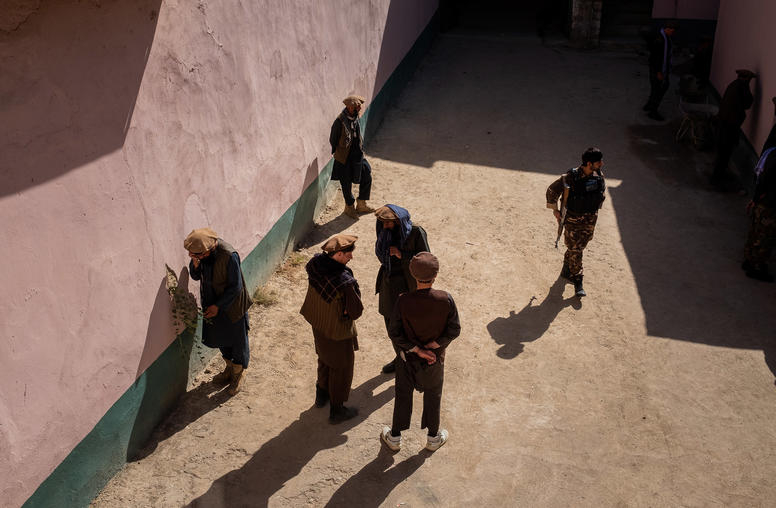
Taliban Fragmentation: Fact, Fiction, and Future
For years, the U.S. military pursued a "divide and defeat" strategy against the Afghan Taliban, attempting to exploit the supposedly fragmented nature of the group. Drawing on the academic literature on insurgency, civil war, and negotiated peace, this report finds that the Taliban is a far more cohesive organization than a fragmented one. Moreover, Taliban cohesion may bode well for enforcing the terms of its February 29 agreement with the United States, and any eventual settlement arising from intra-Afghan negotiations.

Scott Worden on the Afghan Power-Sharing Deal
A political deal to resolve the disputed 2019 presidential election was finally reached over the weekend. USIP’s Scott Worden says the agreement “is quite significant” because it will give the Afghan side “more political coherence to negotiate with the Taliban and, if implemented, it will show the Taliban they can’t divide Afghans.”